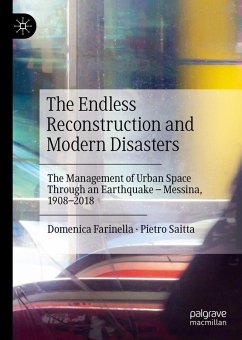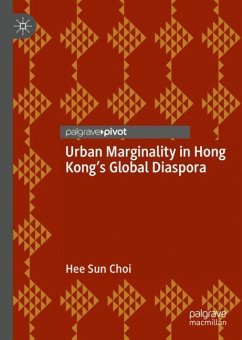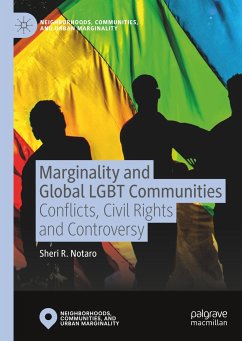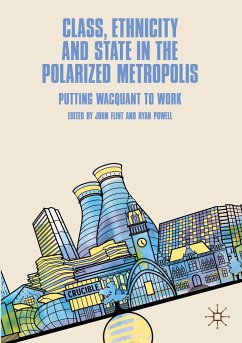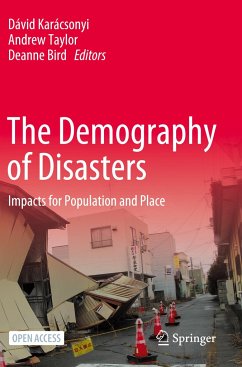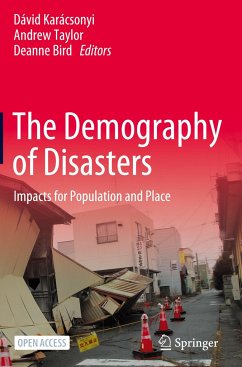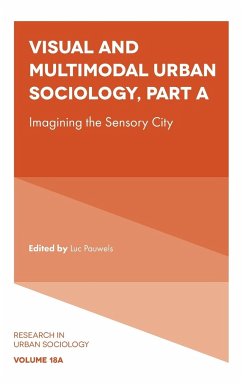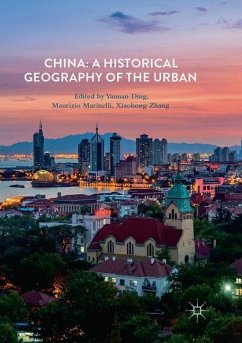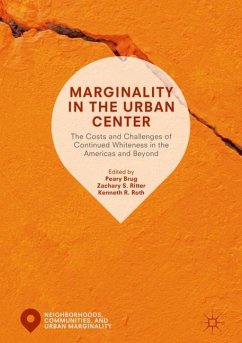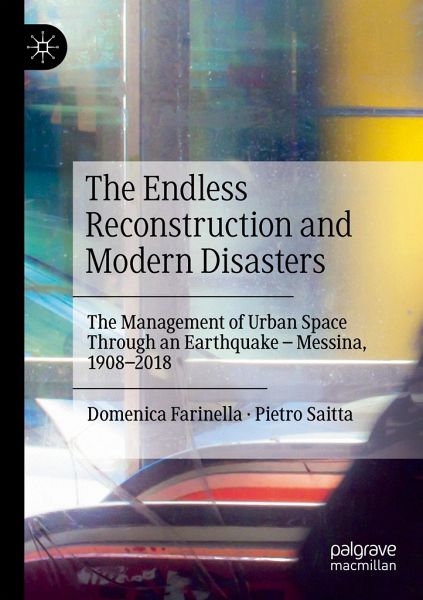
The Endless Reconstruction and Modern Disasters
The Management of Urban Space Through an Earthquake - Messina, 1908-2018
Versandkostenfrei!
Versandfertig in 6-10 Tagen
38,99 €
inkl. MwSt.
Weitere Ausgaben:

PAYBACK Punkte
19 °P sammeln!
This is a study on the long-lasting consequences of a disastrous earthquake that hit the city of Messina, Sicily, in 1908. The quake killed about 86,000 people, and destroyed one of the most important portal cities of the Mediterranean. The book investigates both the forces that shaped that event and made it possible - firstly, urban speculation processes at the end of the nineteenth century - and the role of that occurrence in creating a complex event that, on the one hand, accelerated trends and tendencies that were already in motion; and, on the other, produced an entirely new social space ...
This is a study on the long-lasting consequences of a disastrous earthquake that hit the city of Messina, Sicily, in 1908. The quake killed about 86,000 people, and destroyed one of the most important portal cities of the Mediterranean. The book investigates both the forces that shaped that event and made it possible - firstly, urban speculation processes at the end of the nineteenth century - and the role of that occurrence in creating a complex event that, on the one hand, accelerated trends and tendencies that were already in motion; and, on the other, produced an entirely new social space based on social separation and the raise of a widespread marginal class. Such a class developed within urban borders and spaces that, over the decades, grew according to the same logic and directions that followed the reconstruction. Especially the shacks, still a visible presence in the city, represent the lieu of reproduction both of a class and the whole of the social relations stemming from the disaster.
It shows how key-concepts in contemporary scientific analysis, such as "shock economy" and "economy of disaster," can be aptly backdated. Above all, this study broadens the normal analyses of disasters by showing the stratification of institutional techniques and economic forces that, over the decades, intervened and (re-)shaped the site of a disaster and its social structure.
It shows how key-concepts in contemporary scientific analysis, such as "shock economy" and "economy of disaster," can be aptly backdated. Above all, this study broadens the normal analyses of disasters by showing the stratification of institutional techniques and economic forces that, over the decades, intervened and (re-)shaped the site of a disaster and its social structure.





